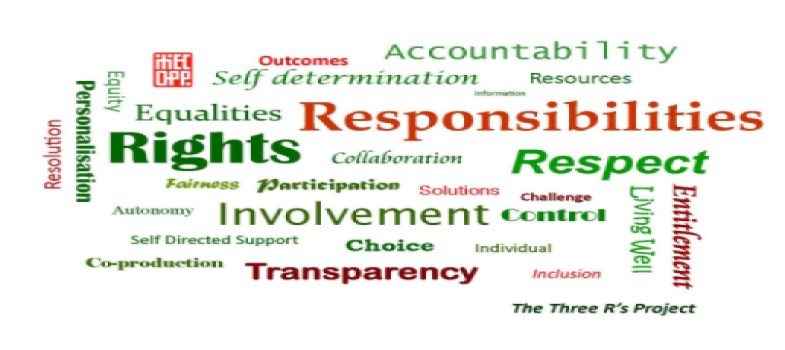What are human rights?
We can consider Human Rights to mean fundamental
freedoms and rights that everyone is entitled to, by virtue of being
human.
The concept of defining and codifying certain basic Human Rights came to the fore following the traumas of the Second World War, which prompted the international community to make efforts to agree on everyone’s rights and set up a system to protect them.
Foundation of an international human rights system
This
sense of a common interest gave rise to the Universal Declaration of
Human Rights (UDHR) in 1948, which is the foundation of the
international human rights system.
The UDHR sought to establish the fundamental rights for everyone, necessary for
freedom, justice and peace in the world and recognised 30 human rights
to include everything considered essential to a democratic society.
“...recognition of the inherent dignity and of the equal and inalienable
rights of all members of the human family is the foundation of freedom,
justice and peace in the world”
Preamble to the Universal Declaration of Human Rights, 1948
So from the outset there was a recognition that human rights referred to things that were important
in people’s everyday lives.
Eleanor
Roosevelt, Chairperson of the United Nations Human Rights Commission that
drafted the Universal Declaration of Human Rights, put it like this
“Where, after all, do universal human rights begin? In small places,
close to home - so close and so small that they cannot be seen on
any maps of the world. Yet they are the world of the individual person;
the neighbourhood he lives in; the school or college he attends;the
factory, farm, or office where he works…Unless these rights have
meaning there, they have little meaning anywhere. Without concerted citizen action to uphold them close to home, we shall look in vain for
progress in the larger world.”
They included
the right to live or vote or not be locked up without reason, the right
to work, earn money, get an education and have health care.
The Universal Declaration of Human Rights recognises that all of these things are
needed to really be free; they interact with each other to create freedom.
The recognition of Universal Rights also helps in setting
the limits of state power. Human rights
laws essentially set out a contract between a government and the people of
the country.
National
governments accept duties under international law to respect, to protect and to
fulfil human rights which means not taking away our rights, but also ensuring
others don’t take them away and sometimes, actively taking steps to fulfil them.
These responsibilities extend to all public authorities including
Government, councils, schools, the NHS and indeed anyone providing
public services.
Last modified: Thursday, 30 January 2020, 9:14 AM
